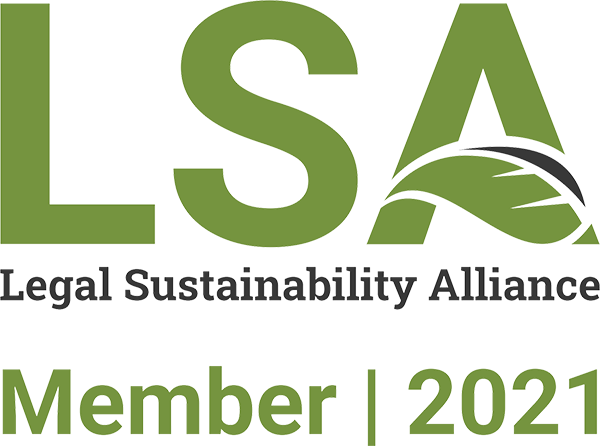1. Context
On 11 October 2020, Regulation (EU) 2019/452 of the European Parliament and of the Council of 19 March 2019 establishing a framework for the screening of foreign direct investments into the Union, adopted on 19 March 2019 (the “FDI Regulation”), became directly applicale in the Member States.
The FDI Regulation aims to establish a mechanism for cooperation between Member States, and between Member States and the European Commission (the “Commission”) in relation to foreign direct investments (“FDI”) likely to affect security or public order.
FDIs represent one of the main development sources of an economy and that is why it matters how each state relates to them. In the context of the crisis, the ability of an economy to attract sound foreign investments becomes even more important.
At national level, a draft emergency ordinance is currently undergoing the legislative process and is meant to cover the measures required for the application of the FDI Regulation, as well as to amend and supplement Competition Law no. 21/1996 (the “Draft GEO”); the Draft GEO is envisaged to get into force by the end of the year.
2. What does foreign direct investment mean according to the FDI Regulation and how does such an investment become subject to a screening
According to the FDI Regulation, foreign direct investments are those investments that meet the following conditions:
(i) are made or intended to be made by a foreign investor, meaning a natural or legal person from a third country;
(ii) they entail the carrying out of an economic activity in a Member State, including investments which enable effective participation in the management or control of a company carrying out an economic activity (e.g., the acquisition of shares in a company based in a EU Member State); and
(iii) aim to establish or to maintain lasting and direct links between the foreign investor and the entrepreneur to whom or the undertaking to which the capital is made available.
According to the FDI Regulation, the essential criterion used in establishing whether an FDI is subject to screening, is its likeliness to affect security or public order. This criterion is better explained by a series of specifications in the FDI Regulation, such as whether the FDI may affect, among others, (i) critical infrastructure, including energy, transport, water or health infrastructure; (ii) supply of critical inputs, including energy or raw materials, or (iii) access to sensitive information. Moreover, whether the foreign investor is directly or indirectly controlled by the government of a third country or whether there is a serious risk that the foreign investor engages in illegal or criminal activities, are also indications that a FDI is likely to affect security or public order.
3. Who does the screening of an FDI?
Each Member State has the power to make the screening of an FDI. The FDI Regulation, however, creates the bases of a cooperation mechanism between the Member States and between the Member States and the Commission respectively, whereby the other Member States and/or the Commission should have access to the FDI undergoing screening and could intervene in case security or public order in such other Member States would be affected.
Thus, the Member States will have to send a notification to the Commission and to the other Member States on any FDI undergoing screening in their territory, as well as a list of Member States whose security or public order is deemed likely to be affected.
The other Member States will be in a position to request information regarding the respective investment and submit comments. The Commission will also be able to request information and/or issue an opinion to the Member State undertaking the screening, if it considers that the FDI is likely to affect the security or public order in several Member States or if it has relevant information in relation to the respective FDI.
Furthermore, these rights of the other Member States and/or of the Commission may also be exercised in respect of those FDI in a Member State, which are not undergoing screening in that Member State.
4. How does Romania currently address an FDI?
Romania is no stranger to the concept of FDI screening and, at this time, the screening is made according to the procedures established by Competition Law no. 21/1996. According to the Competition Council’s notification, the Supreme Council of National Defence is the competent body to analyse the operations that are likely to affect national security.
In situations where an acquisition of control of undertakings or assets poses risks to national security, the Government, at the proposal of the Supreme Council of National Defence, will issue a decision prohibiting such acquisition.
For the application of these provisions, the Supreme Council of National Defence issued decision no. 73/27 September 2012 listing the areas in which the acquisition of control of undertakings or assets, respectively economic concentration operations, are subject to control, namely:
- the security of citizens and communities, border security, energy security, transport security, security of vital resources supply systems, security of critical infrastructure, security of information and communication systems, security of financial, tax, banking and insurance activities, security of production and movement of weapons, ammunition, explosives, toxic substances, industrial security, protection against disasters;
- protection of agriculture and of the environment;
- protection of the privatisation operations of state-owned companies or of their management.
5. What does the Draft GEO propose?
5.1. Conditions for the screening of foreign direct investments
The Draft GEO stipulates that the FDIs that meet the following conditions will be notified to the Competition Council: (i) their value is at least the equivalent in RON of EUR 2 million and (ii) their object of activity falls within one of the areas set out in the Decision of the Supreme Council of National Defence.
Furthermore, other FDI than those set forth above may undergo screening, if it is considered that they are likely to affect the national security or public order.
Moreover, the Draft GEO broadens the definition of the FDI stipulated in the FDI Regulation and includes also investments that allow a foreign investor to obtain, through the economic entity in which it invests, access to relevant information, systems or technologies that are likely to impact in any way the security or public order in Romania. However, portfolio investments are expressly excluded from the application of the Draft GEO.
5.2. The concept of foreign investor
The Draft GEO also expands the scope of foreign investors provided for in the FDI Regulation and includes, in addition to natural or legal persons from a third country, (i) legal persons whose registered office is in a Member State of the European Union, but which are directly or indirectly controlled by a natural person, a legal person or an entity without legal personality from a third country; but also (ii) the trustees of an entity without legal personality or persons in a similar position, if they are not natural or legal persons of the European Union.
The qualification of FDIs based on the control criterion is not surprising and has also been anticipated through the more recent approach of the National Bank of Romania, of interpreting the FDI statistics in terms of the final destination of investments.
5.3. FDI screening procedure
The foreign investor (or both parties involved in the transaction, in the case of a merger) will notify the Competition Council, irrespective of whether the foreign direct investment in question represents an economic concentration or not. However, if this also concerns an economic concentration, only one notification will be submitted.
The Competition Council will submit the notification to the commission for the screening of foreign direct investments (CEISD), which should complete its screening within no more than 45 days from the date on which the notification became effective.
If the CEISD considers that there are major security risks or if the votes of the CEISD members do not meet the majority required to issue the consent, the Competition Council may seek the opinion of the Supreme Council of National Defence. This opinion will be issued in no more than 90 days as of being requested.
Following its screening, the CEISD will issue a consent for authorisation (which will be followed by a decision of the Prime Minister), conditional authorisation, interdiction or cancellation of the FDI.
5.4. Impact of the new legislative framework on foreign investments and applicable sanctions
The Draft GEO changes the FDI approval regime in Romania and its broad definition makes the uncertainty of notification hover over any foreign investment.
In this context, foreign investors (and not only) must carry out a careful analysis of all the particularities of the investment they intend to make, in order to determine whether or not the obligation to notify applies to them.
Violation of the obligation to notify the implementation of an FDI or the provision of inaccurate, incomplete or misleading information in an application, a confirmation, a notification or a supplement thereto, constitutes a contravention and is sanctioned by the Competition Council with a fine from 1% to 5% of the total turnover obtained during the financial year prior to the sanction.
This information is not legal assistance. For further details, please contact us.







